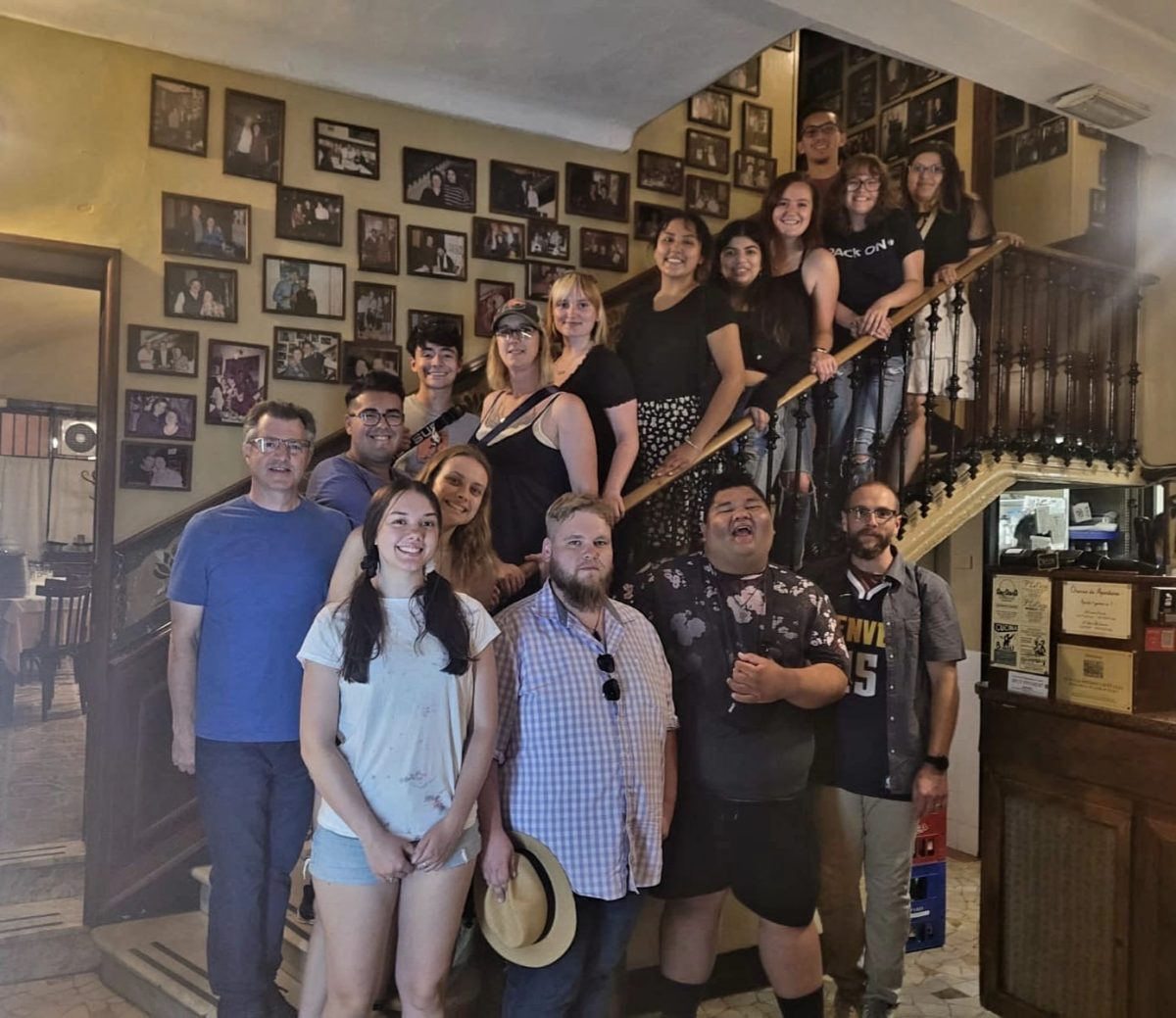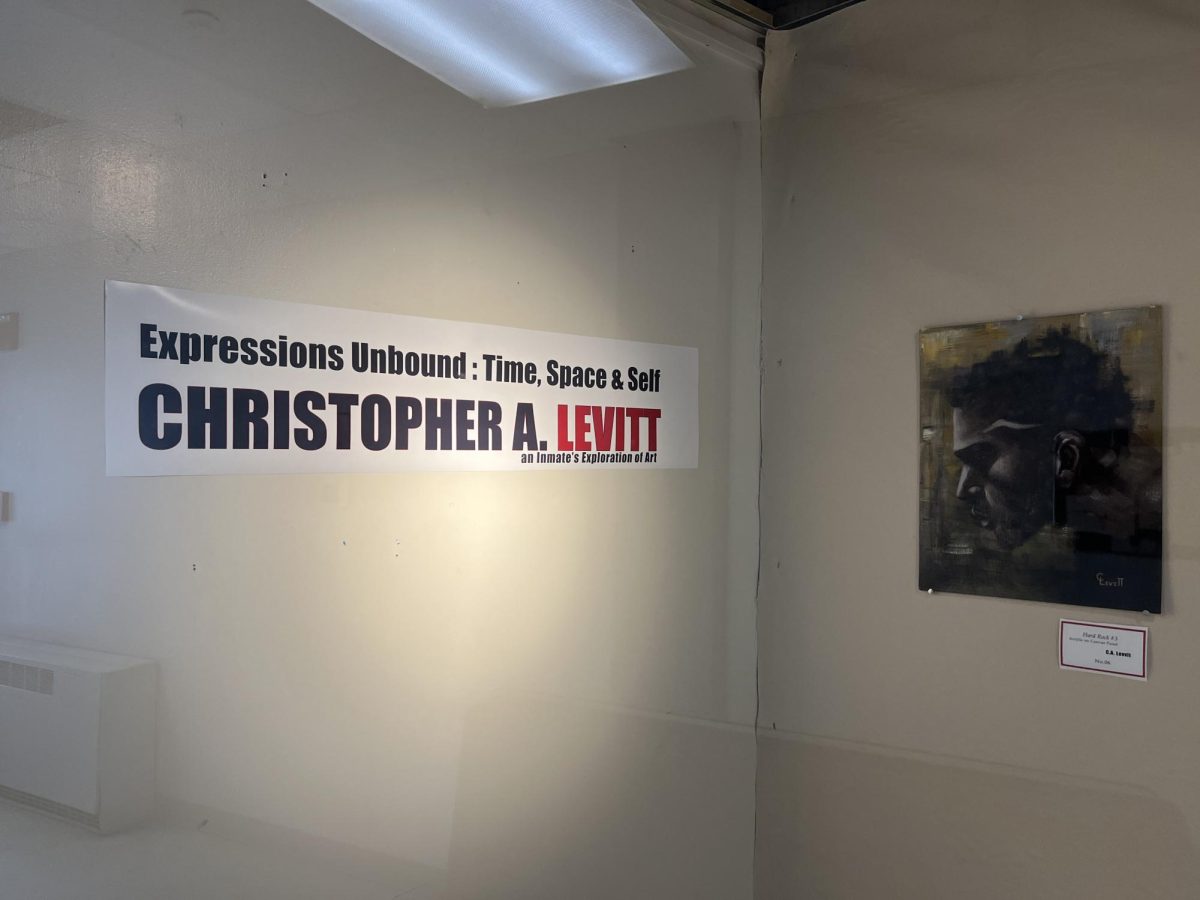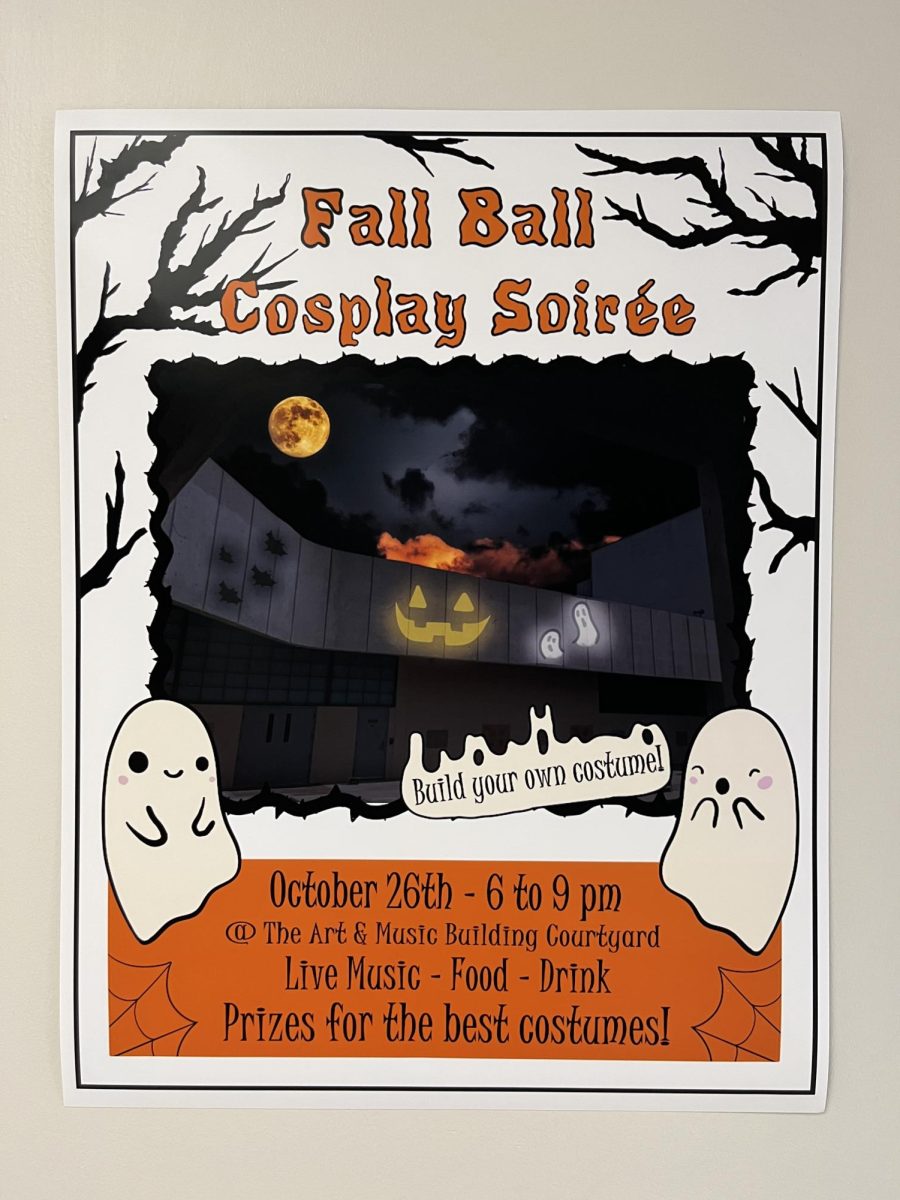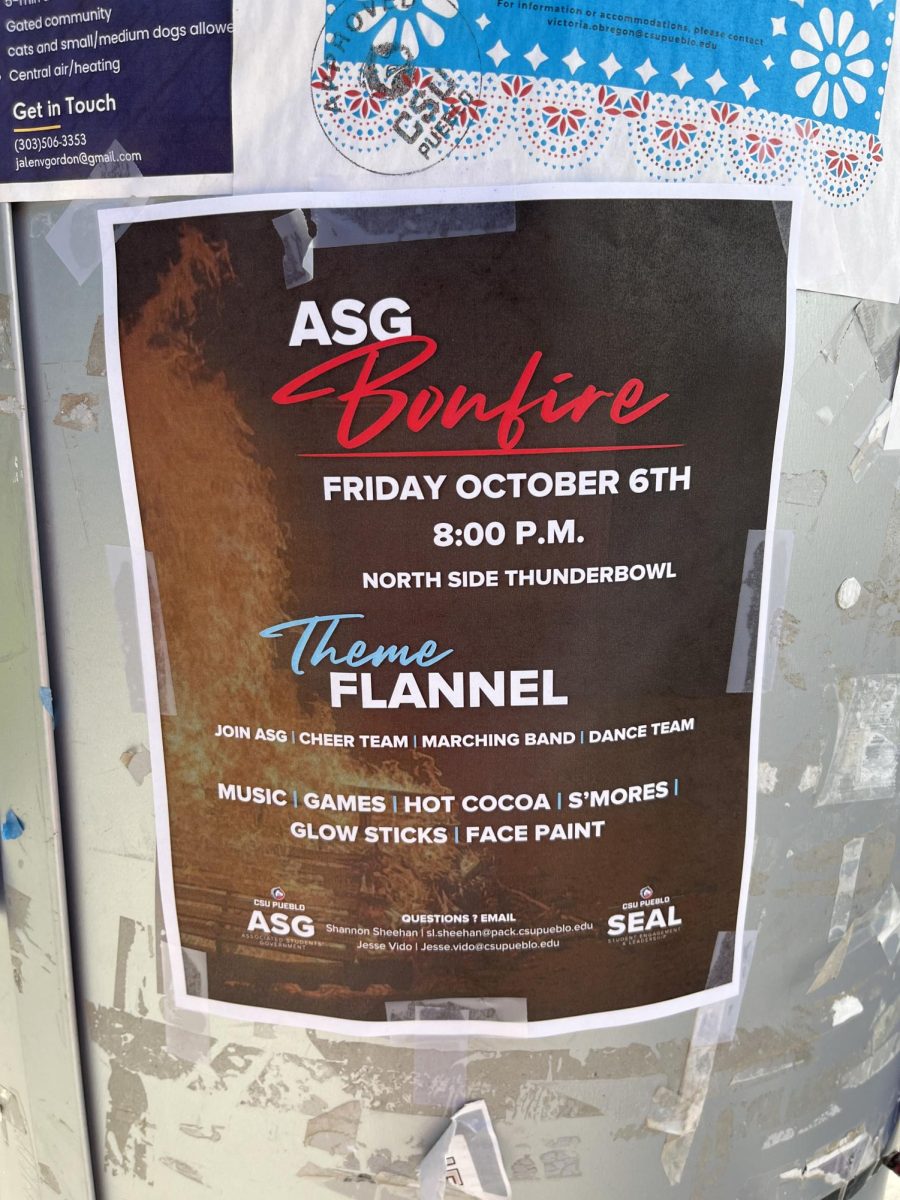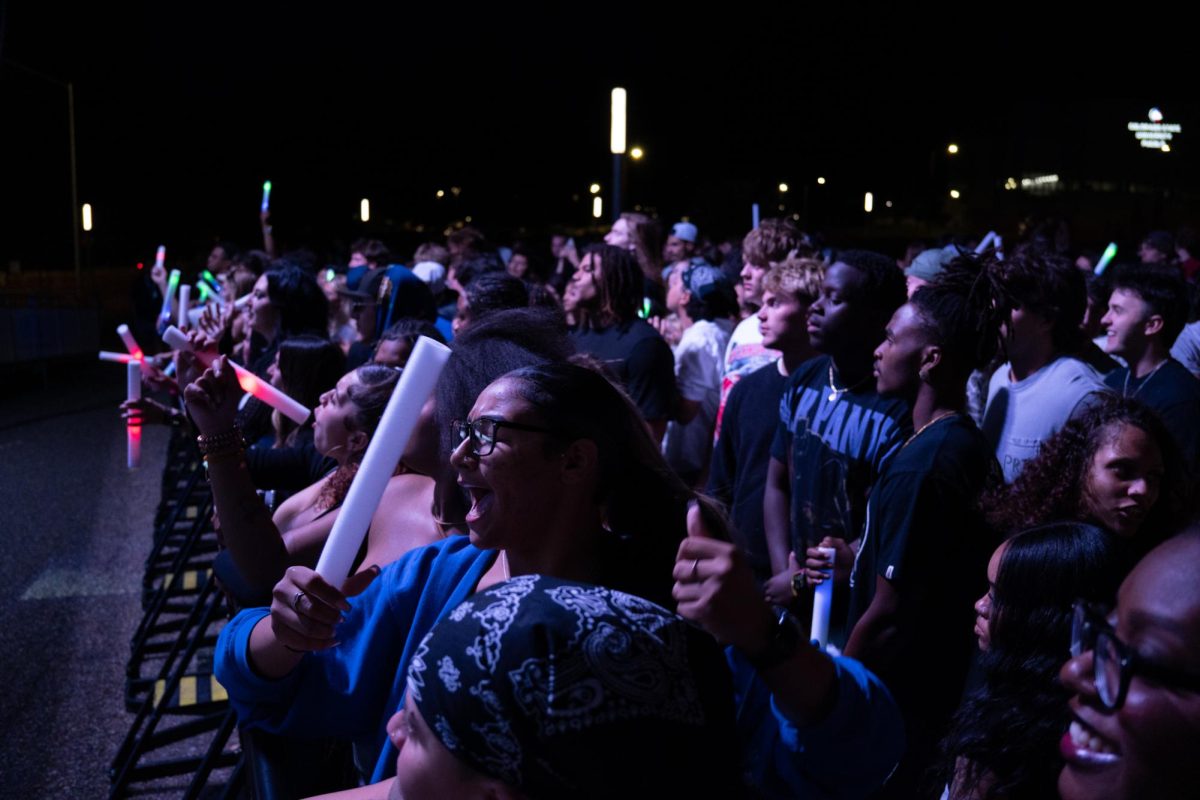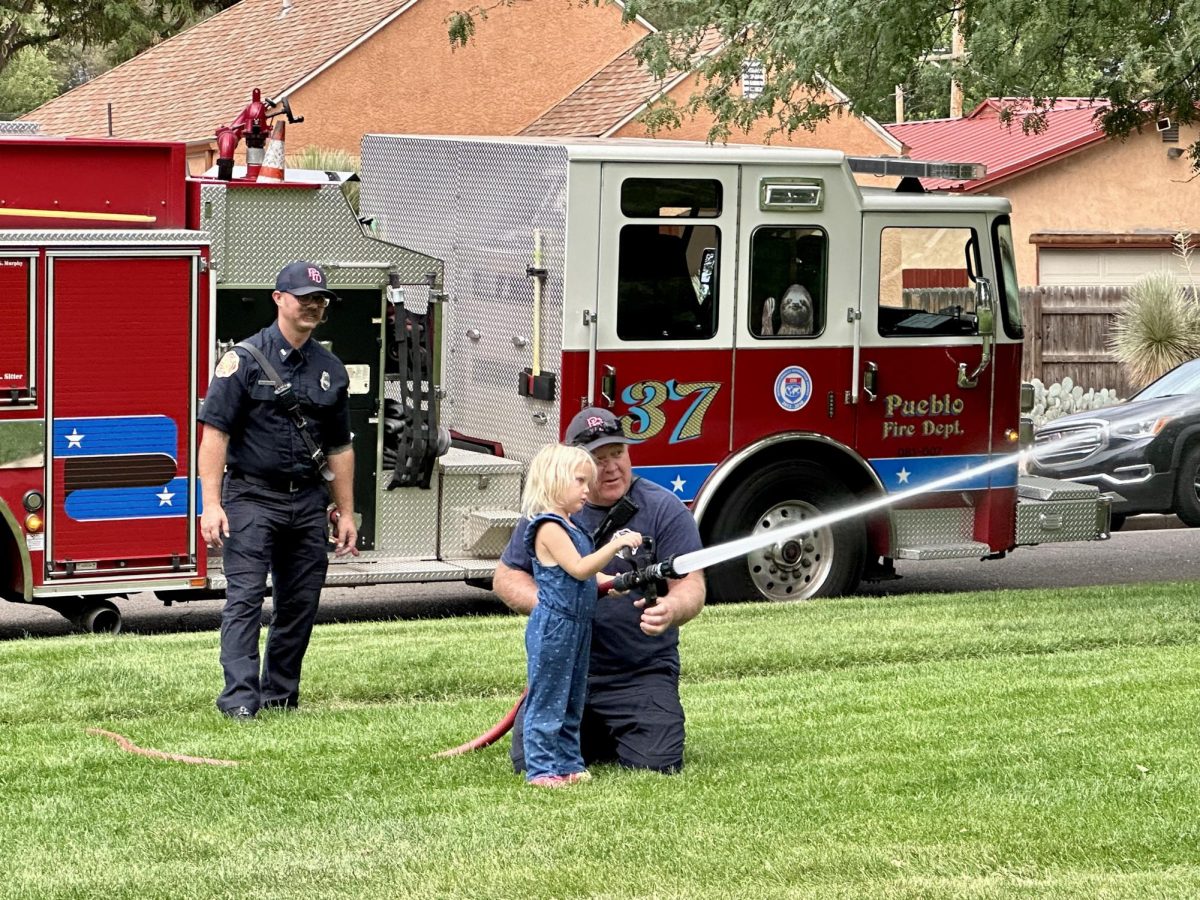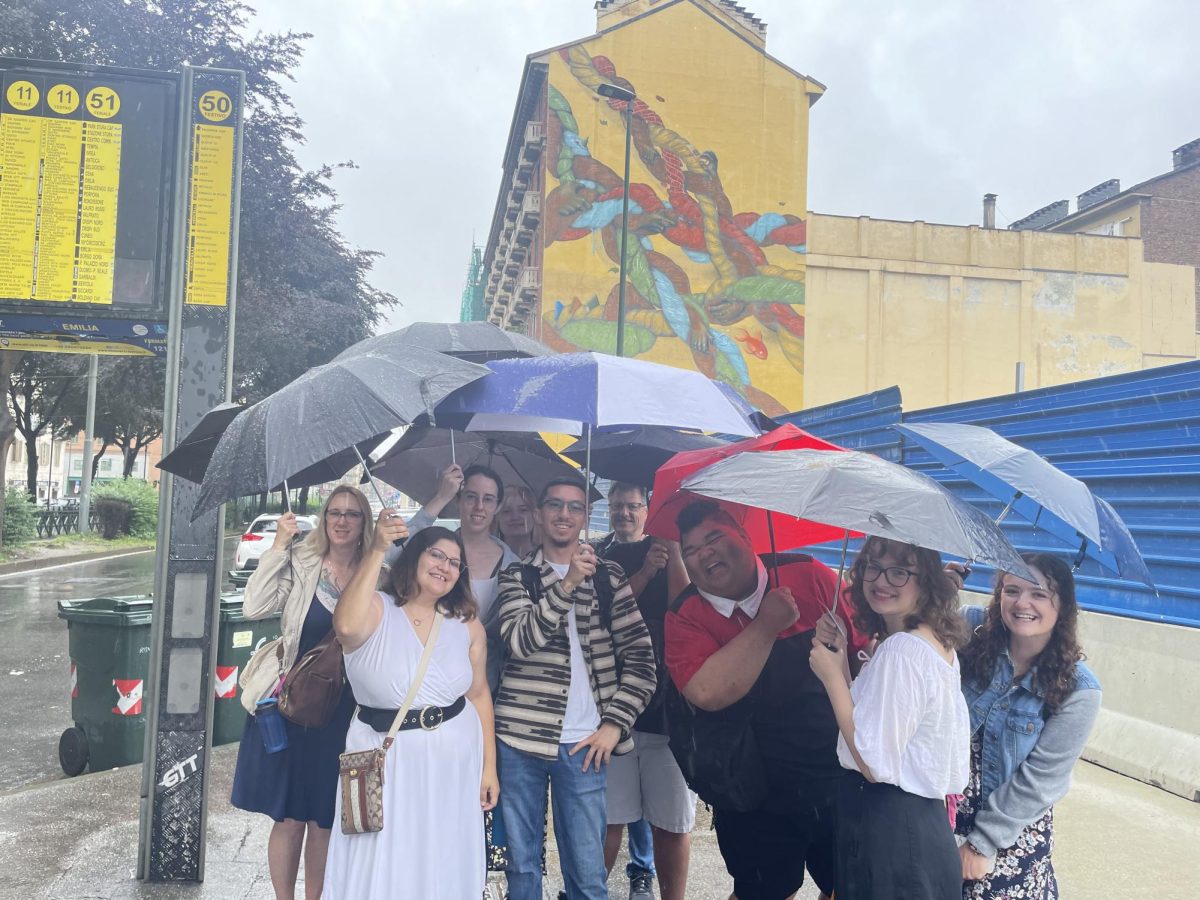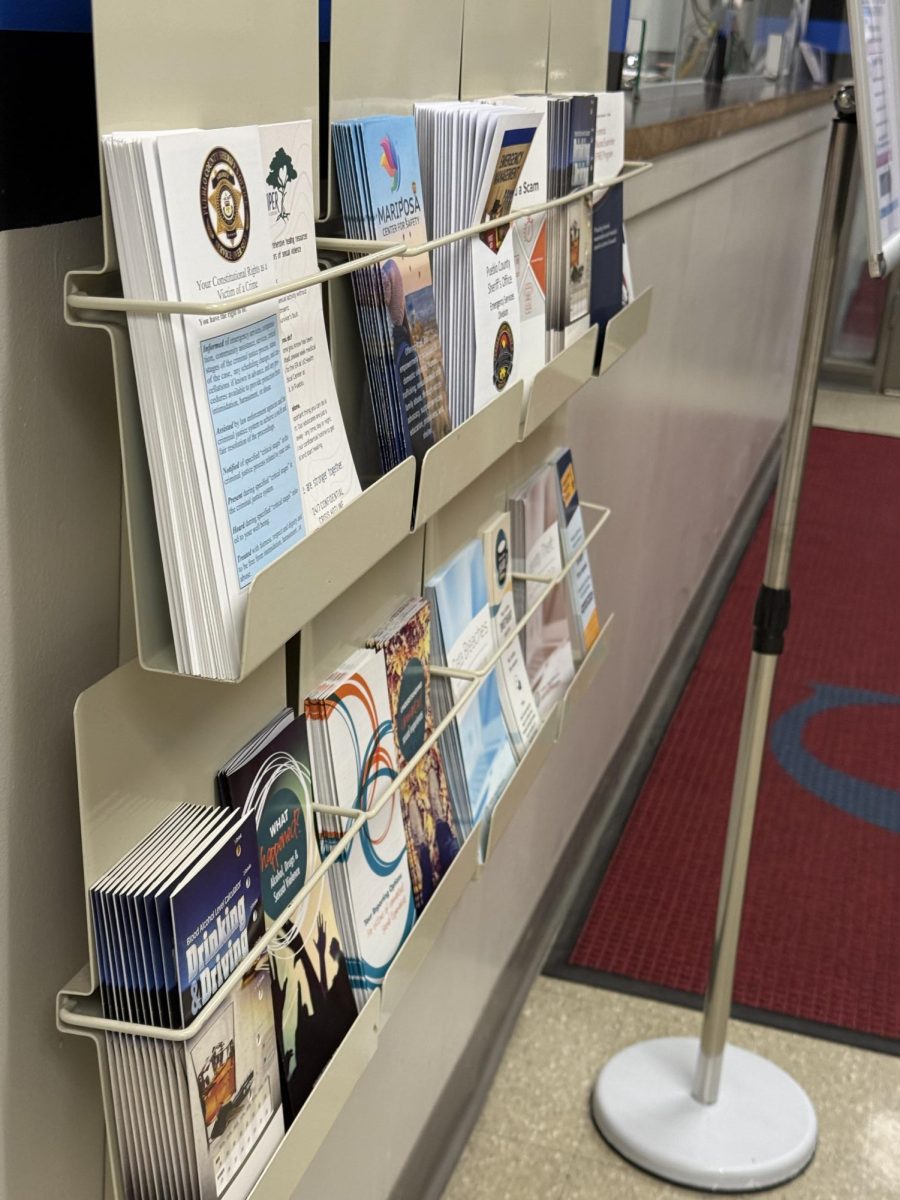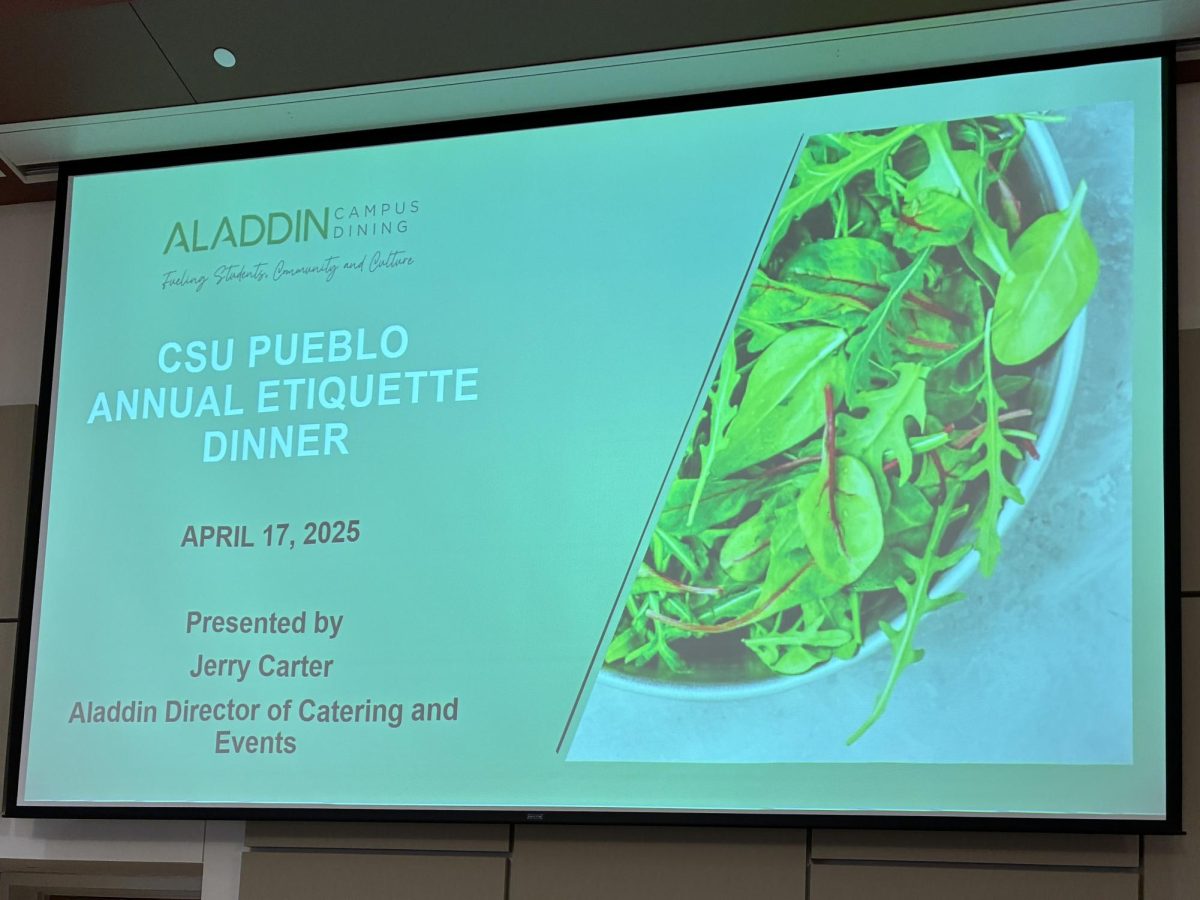
When many students were younger, perhaps in elementary school, the thought of watching a movie in class always evoked excitement as a day of relaxation and immersion in a cinematic escape from the unending hours of school. Now, as students in college have grown and academic tastes have evolved, the purpose of film has taken on a new role.
Films have become something of a national standard in the United States.
You’re born in America; you watch a movie. Perhaps not even just America, but it would seem that the media-saturated world has taken films as the encompassing tool to bring people together.
This brings into question what exactly film’s role is at Colorado State University-Pueblo? What is the role of one of the most prevalent forms of media in the world? What purpose would you find for a film in a classroom?
The answer spans several disciplines and appears to be ever expanding, but to understand film in a practical sense, in a sense that focuses on the root creation of the medium, CSU-Pueblo’s mass communications department has always maintained a serious connection to film.
Mass Communications Professor Samuel Ebersole, who has worked in film and TV production for years, understands and appreciates film’s prevalence to the community of the college and culture that surrounds it.
“Film is very attractive to students,” Ebersole remarked, clarifying that students have grown up knowing films as the most prominent form of storytelling in their lives.
“We don’t sit in our living rooms reading stories anymore. We go out and watch a movie,” the professor said.
As far as the potential of film related classes in the mass communications department, Ebersole remained optimistic, but cautious while discussing the possibilities.
He commented on the fact that he will be resurrecting his video documentary course in the fall of 2017, allowing students to experience storytelling and visual representation in a unique way.
Ebersole would add, however, that the possibility of more film related classes would be up in the air and may rely on the stability of the mass communications department’s future staff.
“Something like a film critique class would hinge on staff, perhaps, grabbing onto the concept and running with it,” Ebersole commented.
Ebersole reassured that the department’s digital video courses offer something that could satiate students with their sights set on video production.
The theme of cautious optimism permeated the mass communications building somewhat as the department chair, Leticia Steffen, was quite intrigued by the potential of films in the classroom, whether it’s for thematic exploration or practical application.
“I think there could be a very good argument for there to be a special topics course on critique in the department,” Steffen said.
Considering special topics in other universities do include such topics as the band U2 or the media portrayals of characters in “The Simpsons,” how difficult might it be to get a film study or critique class rolling at CSU-Pueblo?
As broad a topic as film and visual portrayals are, it’d be easy to imagine that sort of course catching on with students of any college.
Student interest, though, isn’t the deciding factor, as both Ebersole and Steffen detailed.
“The mass communications department has gone through several shifts since I came on in 2004,” Steffen said, adding that this year the department is looking at its largest full-time staff in nearly five years.
“We are very optimistic that, if we maintain our staff, we could expand into more special topics areas like that,” She noted, even going to say that special topics courses are just more fun to teach and get student interaction.
Outside the mass communications department, film has become something of a regular among certain campus departments, with visual medium dipping its toes into the philosophy department next semester as part of a brand new course called “Filming Philosophy.”
Championed by visiting professor Andrew Corsa, the class looks to link two of the professor’s passions as it delves into the exponential philosophical concepts of mimesis and empathy.
“There’s a lot of interesting ways in which art connects with philosophy,” Corsa said while explaining his motivation for developing the course.
“Many students won’t continue studying philosophy after they graduate, but they will continue to read books and watch movies,” Corsa also noted, saying that there is value to someone understanding art at more than its surface value.
One of the biggest events involved in the course, an event that could change everything for film at the university, is the arrival of filmmaker Josh Munson and the movie he intends on creating on the CSU-Pueblo campus in the spring semester.
Munson, a former student of Corsa while the two were at Kutztown University, was invited to the campus by his former professor with the hope that Munson’s film would tie in many departments.
“Provided we get enough funding; we would have music students composing the score, people from the mass comm department editing, psych department analyzing… art department writing about it as well,” Corsa explained as he ran down the potentially wide-spread field of disciplines that this project could reach.
Potentially being the operative word, as the project is currently in need of funding, with a goal of $7,500.
Corsa and Munson have accordingly set up a GoFundMe.com page to reach out, though the two are still seeking grants for equipment.
“I’m a big fan of experiential learning,” Corsa said regarding how Munson’s film would provide unique opportunities to the students of CSU-P.
The fact that there may be a movie filmed on campus brings into perspective just how much movies themselves have pervaded the idealistic college campus mindset.
Though not as common as a say an art student’s painting or a buddy of yours writing a song for their poetry class, this cinematic art form is just starting to pick up steam.
Films have such a prominent presence in American culture that it shouldn’t surprise that the CSU-Pueblo campus suddenly seems ripe with film in the classroom. But the return of Ebersole’s documentary class, the debut of filming philosophy, and Josh Munson bringing the reel to campus, all provide students with plentiful opportunities to take in the film experience one way or another.
If you are interested in hearing more about Josh Munson’s film project or wish to contribute to their ultimate goal, you can learn more at https://www.gofundme.com/csupueblofilm, or contact Professor Corsa at [email protected]
Edited by: Theresa Wolf





